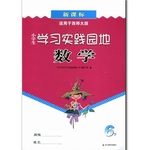题目内容
阅读理解
I began to grow up when my parents and I were returning from my aunt's house that winter night, and
my mother said that we would soon leave for America. We were on the bus then. I was crying, and some people on the bus were turning around to look at me. I cried because I could not bear the thought of never hearing the radio program for school children again. I also had to say goodbye to my dear friends and
relatives. I thought about the new country I was going to see-the strange place I had known only from
books and pictures.
The four years that followed taught me the importance of optimism(乐观), but the idea did not come
to me at once. For the first two years in New York, I was really lost-having to study in three schools
because of family moves. I did not quite know what I was or what I should be. Mother remarried, and
things became even more complex for me. Some time passed before my stepfather and I got used to each other. I was often sad, and saw no end to "the hard times."
My responsibilities in the family increased a lot since I knew English better than everyone else at home. I wrote letters, filled out forms, translated at interviews with Immigration officers(移民局官员), took my
grandparents to the doctor and translated there, and even discussed telephone bills with company
representatives.
From my experiences I have learned one important rule: Almost all common troubles go away at last!
Something good is certain to happen in the end when you do not give up, and just wait a little! I believe
that my life will turn out all right, even though it will not be that easy.
1. How did the author get to know America?
A. From radio programs.
B. From books and pictures.
C. From her mother.
D. From her relatives.
2. When leaving for America, the author felt __________.
A. sad
B. confused
C. excited
D. surprised
63 For the first two years in New York, the author __________.
A. often lost her way
B. did not think about her future
C. studied in three different schools
D. got on well with her stepfather
4. What can we learn about the author from Paragraph 3?
A. She worked as a translator.
B. She attended a lot of job interviews.
C. She paid telephone bills for her family.
D. She helped her family with her English.
5. The author believes that __________.
A. her future will be free from troubles
B. it is difficult to learn to become patient
C. there are more good things than bad things
D. good things will happen if one keeps trying
I began to grow up when my parents and I were returning from my aunt's house that winter night, and
my mother said that we would soon leave for America. We were on the bus then. I was crying, and some people on the bus were turning around to look at me. I cried because I could not bear the thought of never hearing the radio program for school children again. I also had to say goodbye to my dear friends and
relatives. I thought about the new country I was going to see-the strange place I had known only from
books and pictures.
The four years that followed taught me the importance of optimism(乐观), but the idea did not come
to me at once. For the first two years in New York, I was really lost-having to study in three schools
because of family moves. I did not quite know what I was or what I should be. Mother remarried, and
things became even more complex for me. Some time passed before my stepfather and I got used to each other. I was often sad, and saw no end to "the hard times."
My responsibilities in the family increased a lot since I knew English better than everyone else at home. I wrote letters, filled out forms, translated at interviews with Immigration officers(移民局官员), took my
grandparents to the doctor and translated there, and even discussed telephone bills with company
representatives.
From my experiences I have learned one important rule: Almost all common troubles go away at last!
Something good is certain to happen in the end when you do not give up, and just wait a little! I believe
that my life will turn out all right, even though it will not be that easy.
1. How did the author get to know America?
A. From radio programs.
B. From books and pictures.
C. From her mother.
D. From her relatives.
2. When leaving for America, the author felt __________.
A. sad
B. confused
C. excited
D. surprised
63 For the first two years in New York, the author __________.
A. often lost her way
B. did not think about her future
C. studied in three different schools
D. got on well with her stepfather
4. What can we learn about the author from Paragraph 3?
A. She worked as a translator.
B. She attended a lot of job interviews.
C. She paid telephone bills for her family.
D. She helped her family with her English.
5. The author believes that __________.
A. her future will be free from troubles
B. it is difficult to learn to become patient
C. there are more good things than bad things
D. good things will happen if one keeps trying
1-5: BACDD

练习册系列答案
 学习实践园地系列答案
学习实践园地系列答案
相关题目